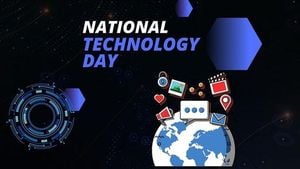On March 18, 2025, the Beijing Municipal Science and Technology Commission, alongside the Zhongguancun Management Committee, organized a significant themed interview to explore the ongoing construction of the Zhongguancun World Leading Science and Technology Park. This initiative highlights the integration of artificial intelligence and new materials, referred to as “AI + New Materials,” showcasing the advancements these fields are contributing to industries in Beijing.
DeepTech, a leading name in this innovative realm, is spearheading an AI for Science micro-scale industrial infrastructure that has been likened to a “magic library” for scientific innovations. This facility has garnered considerable attention, particularly for the role of AI in predicting molecular properties and optimizing the production processes of new materials. Wang Xu, a senior manager at DeepTech, explained how their large model product has significantly improved the initial discharge capacity of lithium battery cathode materials, among other advancements.
Part of DeepTech's pursuits includes the ambitious OpenLAM project, founded in collaboration with the Beijing Academy of Artificial Intelligence. The initiative aims to conquer the periodic table, having successfully developed two generations of a deep potential pre-training large model (DPA-2) that encompasses over 90 elements. These breakthroughs may be applied across diverse material systems, including semiconductors and alloys, significantly broadening the horizons for material sciences.
As technology progresses, the DeepChem unmanned intelligent laboratory serves as a testament to innovation in experimental chemistry. Here, robots dubbed “experimental chemists” tirelessly conduct high-throughput screening of chemical reagents, achieving around-the-clock operational capacity. This automated lab not only enhances research efficiency but also minimizes human errors in experimental outcomes, a critical advancement in the field.
Liu Yuzhou, the founder of DeepChem and a professor at Beihang University, noted, “Our self-developed models and automation equipment have provided R&D services to numerous enterprises, reducing costs and accelerating the transition of new materials from the lab to industrial applications.” He emphasized that intelligent laboratories are vital physical platforms for the development of “AI + New Materials” in Beijing.
The transformative impacts of AI on everyday materials are already evident, exemplified by the Xiaomi SU7. Released in March 2024, this car is equipped with a titanium alloy that was swiftly identified from thousands of formulations using AI simulation tools. The result? A reduction of 840 welding points in its body structure, which not only enhances stability but also decreases overall weight, thereby improving the car's range. Similarly, the Xiaomi SU7 Ultra, launched in February 2025, also features the same advanced titanium alloy.
In other major developments, the China Steel Research Institute reported the design and manufacture of the world’s strongest high-performance anti-hydrogen thick plate material, achieving this feat within a mere six months. Meanwhile, Sinopec is leveraging AI to catalyze green oxidation processes, effectively modernizing traditional research methods to foster innovative catalytic techniques.
Meanwhile, the Beijing Municipal Science and Technology Commission, in conjunction with the Zhongguancun Management Committee, has unveiled the “Beijing Action Plan to Accelerate the Promotion of Artificial Intelligence + New Materials Innovation and Development (2025-2027).” This strategic plan sets ambitious goals for the next few years, including making Beijing an international leader in the innovation and application of new materials and artificial intelligence technologies.
By 2027, the plan aims for an enhanced capacity for innovation in AI and new materials, emphasizing the growth of the material research service sector. Currently, Beijing has an impressive array of approximately ten AI and new materials algorithm software companies, which constitute about one-third of the national total.
Furthermore, the presence of facilities enhancing rapid prototyping and innovative data platforms supports Beijing’s development in this high-tech sector. Notably, educational institutions like the Beijing University of Science and Technology have opened programs in Material Intelligence Technology, with more than 500 interdisciplinary talents being cultivated each year, fueling the continuous growth and dynamism of the industry.
In the face of accelerated change, leading experts in material sciences, such as academicians He Weinan, Xie Jianxin, and Wang Weihua, are at the forefront of advocating for innovation in the integration of AI and new materials, supplying the sector with potent intellectual support. The establishment of the National New Materials Big Data Center, with multiple tasks launched in Beijing, aims to support an extensive range of industry data resources. Future projections suggest several data resource nodes are set to be established in Beijing, reinforcing a robust foundation for industrial advancement.
As industries continue to evolve in response to AI advancements, Beijing's initiatives represent a significant leap forward in material sciences, showcasing a future anchored in technological intelligence and innovation. The city is poised to create and seize new opportunities at the intersection of AI and new materials, setting the stage for the “Made in China” phenomenon to accelerate and thrive.



